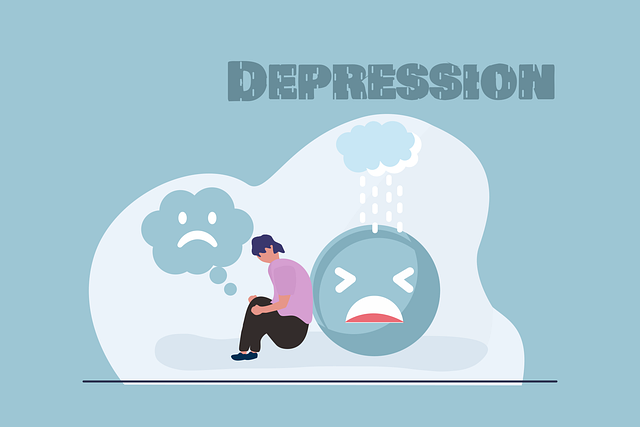Westminster Biofeedback Therapy is committed to comprehensive risk management in mental health practice, beyond just hazard identification. They focus on building professionals' emotional intelligence and coping skills to effectively navigate clients' complex emotions, fostering a supportive environment and promoting practitioner well-being. Their strategies include Mind Over Matter principles, self-esteem improvement, regular stress management training, public awareness campaigns, and social skills training. By integrating these initiatives, they tailor services to the unique needs of the field, ensuring client safety, preventing burnout, and enhancing care quality through proactive risk mitigation.
At Westminster Biofeedback Therapy, risk management planning is not just a checklist—it’s a cornerstone of our commitment to mental health excellence. This comprehensive guide explores the intricate landscape of risk in mental health practice, from identifying potential hazards to implementing robust safeguards. We delve into developing tailored strategies, best practices for therapists, and the ongoing evolution required to protect both professionals and clients. Discover how Westminster Biofeedback Therapy navigates this crucial aspect of modern mental healthcare.
- Understanding Risk in Mental Health Practice at Westminster Biofeedback Therapy
- Identifying Potential Hazards and Their Impact on Therapists and Clients
- Developing a Comprehensive Risk Management Strategy
- Implementing Safeguards: Best Practices for Mental Health Professionals
- Regular Review and Adaptation: Ensuring Continuous Improvement
Understanding Risk in Mental Health Practice at Westminster Biofeedback Therapy

At Westminster Biofeedback Therapy, we recognize that mental health professionals are constantly navigating complex and sensitive situations, making risk management an integral part of their practice. Understanding risk in this context goes beyond identifying potential hazards; it involves cultivating a deep awareness of the emotional and psychological landscapes our clients traverse. We believe that effective risk management starts with enhancing coping skills development and promoting emotional intelligence among mental health professionals.
By integrating these strategies, Westminster Biofeedback Therapy aims to foster a supportive environment where practitioners can manage their own well-being while providing optimal care for their clients. Additionally, we contribute to public awareness campaigns development, ensuring that the broader community understands the importance of mental health risk management and the vital role professionals play in mitigating potential challenges.
Identifying Potential Hazards and Their Impact on Therapists and Clients

Identifying potential hazards is a cornerstone of risk management planning for mental health professionals. These can range from emotional strain and burnout to more specific risks like boundary crossings or ethical dilemmas. At Westminster Biofeedback Therapy, we recognize that therapists and clients alike face unique challenges. For instance, exposure to traumatic stories or intense emotions can take a toll on a therapist’s well-being, impacting their ability to provide effective care. Similarly, clients may experience relapses or unexpected emotional responses during sessions, necessitating skilled handling to avoid adverse outcomes.
Understanding these hazards is crucial for implementing the Mind Over Matter Principles, fostering Self-Esteem Improvement, and conducting thorough Risk Assessments for Mental Health Professionals. By proactively identifying and mitigating risks, therapists can create a safer, more supportive environment for themselves and their clients, ensuring the delivery of high-quality care.
Developing a Comprehensive Risk Management Strategy

Mental health professionals face unique challenges when it comes to risk management due to the sensitive nature of their work. A comprehensive strategy is essential to navigate potential risks and ensure patient safety, fostering a supportive environment for both clients and practitioners. At Westminster Biofeedback Therapy, we understand this need and have developed an extensive approach to risk mitigation.
Our strategy involves a multi-faceted approach, including regular training sessions on stress management techniques, organizing public awareness campaigns to educate communities about mental health, and providing social skills training to enhance the therapeutic environment. By integrating these initiatives, we aim to create a robust safety net that addresses various risks, from client distress to practitioner burnout. This holistic view of risk management is tailored to meet the unique demands of the field, ensuring a secure and nurturing setting for all involved.
Implementing Safeguards: Best Practices for Mental Health Professionals

Implementing safeguards is an integral part of risk management planning for mental health professionals, ensuring client safety and fostering a healthy work environment. At Westminster Biofeedback Therapy, we advocate for a multi-faceted approach to safeguard implementation. Firstly, establishing clear communication channels allows professionals to promptly identify and address potential risks or concerns. This includes regular check-ins with clients to assess their well-being and providing an open, non-judgmental space for them to voice any issues.
Additionally, integrating self-care practices and mindfulness meditation into daily routines is a game-changer. The Stress Management Workshops Organization offers valuable resources for professionals to learn effective stress management techniques. By prioritizing self-care, mental health workers can enhance their resilience, improve focus, and prevent burnout, ultimately reflecting positively on their practice and the care they provide.
Regular Review and Adaptation: Ensuring Continuous Improvement

Mental health professionals must continually review and adapt their risk management strategies to ensure optimal patient care. In an ever-evolving field, staying current with best practices is paramount. Regularly reassessing risk assessment methods and crisis intervention plans allows practitioners to incorporate new research and techniques that can enhance both prevention and recovery outcomes. For instance, integrating innovative tools like Westminster Biofeedback Therapy into existing protocols can offer additional layers of support for clients.
By fostering a culture of ongoing learning and flexibility, mental health professionals can better navigate complex cases and improve patient safety. This proactive approach not only strengthens service delivery but also contributes to the broader goal of public awareness campaigns development and confidence boosting strategies that empower individuals to manage their mental well-being effectively.
Mental health professionals, like those at Westminster Biofeedback Therapy, must prioritize risk management planning to foster a safe and supportive environment for both therapists and clients. By understanding unique risks within mental health practice, identifying potential hazards, and developing robust strategies, practitioners can mitigate challenges effectively. Continuous improvement through regular review and adaptation is key to ensuring the highest standards of care. Implementing best practices and staying agile allows professionals to navigate complexities, adapt to evolving needs, and ultimately provide exceptional services that promote healing and well-being.














